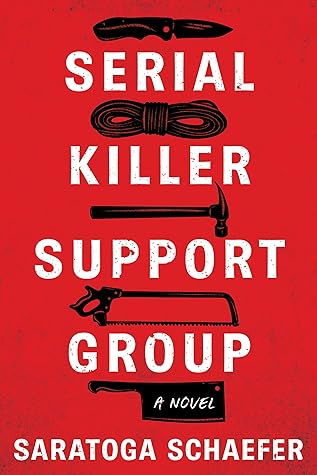More on this book
Community
Kindle Notes & Highlights
Mira was gone, and Cyra’s morals were gone with her. The world was gray; everything was detached and meaningless. Cyra never broke down after Mira’s death. Never cried. Never screamed. Cyra just started planning, determined to find who killed her sister and why. She floated away from her body and returned empty and hungry. And now, finally, was something to feed her.
Why did people always think death meant they could touch you?
Her whole life, Cyra felt like people expected more from her. Larger reactions, stronger emotions.
Through her research, Cyra learned that evolutionary psychologists theorized that male serial killers act as “hunters,” while female serial killers are “gatherers,” choosing victims based on the resources they can get from them.
“You’ll also agree to not kill me? I have things to do. People to avenge. This only works if it’s like a Silence of the Lambs-type relationship where you would find it rude to murder me after we’ve worked together.”
It was too hard to admit that Mira, the person she loved the most, the person she did everything for, hated Cyra at the end of her life.
Maybe Mira’s death gave everyone she knew a different texture of guilt they had to carry around with them. Mira’s father held a bottle, her friends compromised their values, and her sister shredded her humanity in the name of justice.
You can’t feel proper grief or find moments of happiness, but you can get excited at the prospect of chatting with psychopaths? What’s wrong with you?
“You have to be smart for poison. You have to be up close and personal. You have to watch them slump over in their beds. See the life go from their eyes. You have to have the stomach to watch a body do all the fascinating little things a body does after it stops being useful. Poison isn’t the weapon of a woman. It’s the weapon of the heartless.”
“You know, my grandma used to say that if you danced with the Devil long enough, he’d end up thinking he could have more. She always said the only way to save yourself was to say no to the dance in the first place.”
It’s funny the things our minds can look past when we don’t know exactly what we are looking for, Cyra thought.
“It’s OK to fail. You know why? Because it’s always a lesson. There’s always something good you can take away from a failure. And then it stops being a failure at all, you see? Because now you know how to do it right the next time.”
her—admitting that it was comforting to embrace Mistletoe because she echoed the natural emptiness that yawned inside Cyra too. After spending her whole life forcing emotions for other people, it was a relief to unlock the parts of herself she denied for so long, to accept the ease of navigating as someone charming and cold, shaped by steel and broken rocks.
“Sometimes I feel like I am carrying around this little chestnut of pain. And I’ve been carrying it for a long time, basically since I was a kid and my mom left. And every time something bad happens, I stuff it inside this chestnut and bury it in the soil. People talk about how if you bury feelings, they’ll explode later, but that doesn’t happen with me. My buried things die and become nothing. I feel nothing because if it hurts, I get rid of it.”
People can try to change, they can hope to evolve and become better, but there are some parts of them that will always remain the same.
“Read her emails. And think about where you got that insider information from. Smart girl like you, you’ll figure it out.”
“For women, killing is a game. Petty revenge and broken hearts. Women kill for death. Men kill for life. It gives us air. And that’s something you could never understand.”


